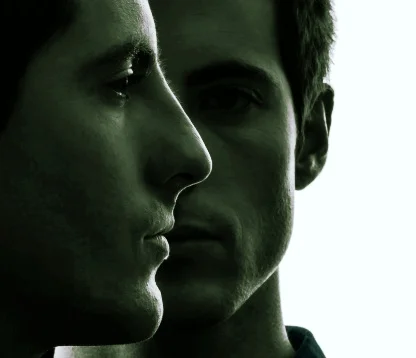Making Time For You
by Calvin Harris H.W., M.
Between the demands of working and bringing home a paycheck, family obligations, paying the bills, social media, and a little time for friends . . . it feels like no time is left for you.
As part of Self-Care month, I wanted you to focus on making time for yourself. Self-Care is another way of saying let’s be Healthy. Which is really different from saying let me be selfish.
Another idea to consider about Health, is that health is not always maintained from medicines. Medicine suggests you can be relieved of dis-ease, or chemically restore a balance in pursuit of the healthy Body. A healthy lifestyle, I suggest, may take you further than just medicine alone. Consider adding activities and things that contribute to peace of mind, peace in the heart, peace in the soul. And, oh yes, liberal amounts of laughter and love to be applied daily for self-care.
To have a healthy lifestyle takes a change in habits, a conscious focus to make time for yourself each day, even if it is only fifteen minutes a day. It is important but, unfortunately, I have seen from clients in my life coaching business time and again it’s something they will let slide or neglect in their busy stressed-out life and wonder why they feel the way they do.
When your thoughts are negative or unsupportive of your happiness and success you feel out of balance or dis-eased. You will find that to change your thinking means to stop beating yourself up: instead, redirect your thinking to thoughts that will support your success and happiness. Laugh, if you can, when you think about the time you have spent obsessing over matters that are not happening or have run their course and are completed.
Suggestion: Arrange whatever small block of time you can to just stop - and draw back from the fast-paced routine of the day to just be truly with yourself and, if possible, define how you feel, or what you’ve learned or experienced. In those moments with yourself take stock to see how you live, and most importantly what gives you enjoyment. The importance of this exercise is that you are not just letting your life slip away from you.
Self-Care moments exist to counteract living life on autopilot. Use tools like journaling to become more mindful in your day-to-day life. It can take just minutes a day to inspire valuable Habit changes. Two wonderful sources I use and that can get you started in that direction are: First, the book "The 7 Habits of Highly Effective People" by Stephen R. Covey, which is a book written on Covey's belief that the way we see the world is entirely based on our own perceptions. And the second is by a company called Vertellis, who has put out an actual journaling formatted book called Vertellis Chapters Journal. I highly recommend both for anyone looking to draw out of themselves and refresh their perspective on how they view the world and are living their lives in it. This is also preparation for those who choose to move their life forward. (Unsurprisingly, this forward movement comes with a feeling of living in gratitude and to have no regrets.)
Over the next 7 to 10 years, the world will look a whole lot different. “AI” Technology will see to that! Computer monitors and other screen-time activities will obliterate “quality”-self-time and instill the mantra “staying busy is more important than self-reflection." Unfortunately, this can create less understanding of oneself and the ability one has for crucial thinking and coping with change in a healthy manner. So, my mission is to facilitate meaningful habit changes with Life Coaching and encouraging self-dialog through Journaling and small group activities. I liken Journaling to going through a maze or Labyrinth of your mind, giving you an outlet for self-reflection and development.
Encouraging these offline moments increases space for self-reflection and can spark sincere conversations with yourself and people you care about to inspire a wholeness within you, through reflection, and self-awareness for a happier, satisfying and more meaningful life.
A satisfying life is what I call a successful life. It goes against conventional thinking, but the word successful, in its normal sense of the word usually is the measure of “other people’s criteria" or standards, not by what the individual creates as criteria for themselves. Flip that around with the use of the word Satisfaction: Now, you see, that is measured, and criteria of your own mind, heart, and efforts are in play.
Routine Daily habits of journaling will allow you to identify your greatest hopes, fears, and dreams, to process that information before you go into a situation that truly matters to you; to learn and name what could hold you back from exploring your innate creativity; to find the nature of what holds you in its grip such as “you’re scared of being disliked”, or “people don’t hear your voice”, or “ fear of letting other people down” –etc., etc. The practice of pinpointing your emotional state is what psychologists call emotional granularity. It is suggested that people who exhibit greater emotional granularity regulate their feelings better and have a greater sense of satisfaction regarding appropriate responses in stressful situations.
Making time for yourself, with daily Journaling, is Self Care that helps you speak to and act with greater control of your interactions, rather than pushing emotions down and numbing yourself to life or being tossed around like salad when stressful situations hit.
To sum up, having a healthy lifestyle takes a change in habits, creating a routine that makes time for yourself – operating in mind, heart, and soul, to consciously focus each day. This type of Self Care gives you the opportunity to see yourself as Conscious mind, the ability to think, "to create and govern thought" and as the vehicle to create your reality.
To investigate this idea further go to https://www.theprosperos.com/ There you will find audio lessons for individual and community group learning.
For Life-Coaching contact Calvin: ialchemy1@gmail.com











